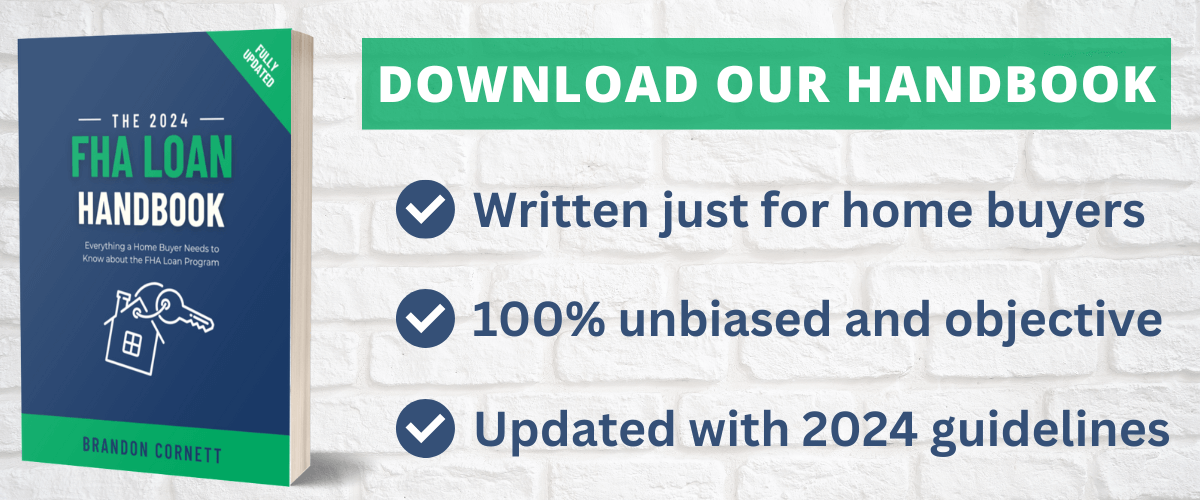It’s a common misconception that FHA loans are only for first-time home buyers. But this is not true. In fact, anyone who meets the minimum guidelines set forth by HUD could qualify for the program. This applies to former homeowners as well as first-time buyers.
While the FHA loans are not limited to first-time buyers, they are often well-suited to this group. This is a very popular financing option for those who are purchasing their first house. In this article, you’ll learn how the FHA mortgage-insurance program works, and why it’s commonly used by first-time home buyers in the U.S.
First-Time Home Buyers Flock to FHA Loan Program in 2015
The FHA home loan is well suited for first-time buyers who don’t have a lot of money saved up for a down payment. There are other benefits to this financing method, as well. And that’s what I’d like to focus on in today’s lesson.
According to the Mortgage Bankers Association (MBA), first-time home buyers account for more than 75 percent of FHA home purchases. It’s not that the program is limited to first-timers. Anyone who meets the basic credit and income requirements can apply for the program. It just happens to be very popular among this group.
It begs the question: Why are FHA loans so popular among first-time buyers? Mainly it’s because of the low down-payment option and the easier qualification process, both of which are explained below.
You can put down as little as 3.5 percent when using this program, if you meet certain credit-score requirements. A conventional mortgage (one with no government backing) will require a down payment of 5 percent or more. Generally speaking, it’s easier to get approved for an FHA loan as well. That’s because the loan is insured by the federal government, giving the lender some degree of financial protection from default.
We will discuss these benefits in more detail below. But first, I want to explain what these home loans are and how they work. This entire lesson will make more sense if we cover the basic concepts of FHA financing.
How the Program Works
The Federal Housing Administration is part of the Department of Housing and Urban Development (HUD). The FHA does not give loans directly to consumers. This is a common misconception. Instead, the loan comes from a mortgage lender operating in the private market, just like any other type of mortgage financing.
The difference is that the FHA insures the lender against financial losses that may occur in the event of a default. If the homeowner can no longer make his or her payments (i.e., defaults), the FHA will cover some of the lender’s losses — as long as the loan was originated properly.
Think of a triangle. There are three “players” and they are all interconnected. You have a borrower, who in this case happens to be a first-time home buyer. You have the lender who actually makes the loan. And you have the Federal Housing Administration (a government agency) that insures the loan in case of borrower default. So the insurance is designed to protect the lender, not the home buyer. This is another misconception about FHA loans.
First-Timers Love the Low Down Payment
First-time buyers in particular are drawn to this home loan strategy. Why? Because they can put down as little as 3.5 percent of the purchase price. The down payment for a conventional mortgage might be 5 percent or more (with some lenders requiring a minimum of 10 percent). So it’s a way to finance a home purchase with less out-of-pocket expense.
The down payment is one thing that makes this a good home loan for first-time buyers. But it’s not the only thing. Earlier, we talked about the relationship between the borrower, the lender, and the Federal Housing Administration. The federal government, through the FHA, insures the lender against any losses they might incur if the homeowner defaults on the loan.
Because of this safety net, lenders are often willing to accept borrowers who wouldn’t normally qualify for a regular mortgage. These are people with less-than-ideal credit, a higher level of debt, and smaller down payments. First-time buyers who have trouble qualifying for a conventional loan mortgage might find it easier to use the FHA program.
